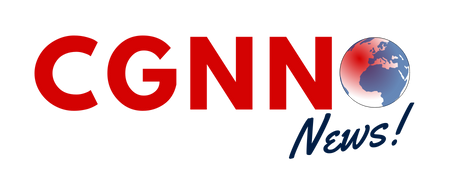
The Canadian government is rescinding its digital services tax to avoid stalling trade talks with the United States, two days after U.S. President Donald Trump announced he would end negotiations over the levy.
Ottawa says that removing the tax will put Canada back on track to reach a trade deal with the United States by July 21.
Trump said on June 27 that he is ending all trade negotiations with Canada over Canada’s digital services tax (DST), which would impact U.S.-based tech companies such as Amazon, Google, and Netflix.
“In our negotiations on a new economic and security relationship between Canada and the United States, Canada’s new government will always be guided by the overall contribution of any possible agreement to the best interests of Canadian workers and businesses,” Prime Minister Mark Carney said in a statement after announcing the removal of the tax on June 29.
“Today’s announcement will support a resumption of negotiations toward the July 21, 2025, timeline set out at this month’s G7 Leaders’ Summit in Kananaskis.”
During the G7 summit in Kananaskis, Alberta, on June 16, Carney and Trump agreed to reach a trade deal within 30 days.
The DST imposed a 3 percent tax on revenue that tech companies earn from digital services provided to Canadian users. It was scheduled to go into effect on June 30, and was retroactive to 2022, leaving U.S. tech companies with a $2 billion bill to pay by the end of June.
The Canadian tax had been an irritant to both the Biden and Trump administrations.
“Based on this egregious Tax, we are hereby terminating all discussions on trade with Canada, effective immediately,” Trump said on June 27. “We will let Canada know the Tariff that they will be paying to do business with the United States of America within the next seven day period.”
The Trump administration has already imposed 25 percent tariffs on Canadian products, though goods falling under the U.S.–Mexico–Canada Agreement have been exempted. Washington has also imposed blanket tariffs on all steel and aluminum imports.
Trump told reporters on June 27 that the United States has “significant influence over Canada.”
“We have all the cards. We do a lot of business with Canada,” he said. “They do most of their business with us. When you have that circumstance, you treat people better.”
Ottawa has been seeking new trade negotiations with the United States to minimize U.S. tariffs.
In announcing the removal of the DST, Canadian Minister of Finance François-Philippe Champagne said the move would allow trade negotiations with the United States to go forward.
“Canada’s new government is focused on building the strongest economy in the G7 and standing up for Canadian workers and businesses,” Champagne said in a statement on June 29.
“Rescinding the digital services tax will allow the negotiations of a new economic and security relationship with the United States to make vital progress and reinforce our work to create jobs and build prosperity for all Canadians.”
Champagne had said as late as June 19 that Ottawa wouldn’t be putting the tax on hold, after pressure from Canadian and U.S. business groups, as well as U.S. politicians to remove the tax. Canada’s Liberal government had said that the tax is in line with similar measures from a number of other countries, and that corporations should pay their “fair share” of taxes in Canada.
The Office of the Parliamentary Budget Officer estimated that the tax would bring in $7.2 billion over five years in revenue for Ottawa.
Andrew Moran and The Canadian Press contributed to this report.
If you found this article interesting, please consider supporting traditional journalism
Our first edition was published 25 years ago from a basement in Atlanta. Today, The Epoch Times brings fact-based, award-winning journalism to millions of Americans.
Our journalists have been threatened, arrested, and assaulted, but our commitment to independent journalism has never wavered. This year marks our 25th year of independent reporting, free from corporate and political influence.
That’s why you’re invited to a limited-time introductory offer — just $1 per week — so you can join millions already celebrating independent news.


